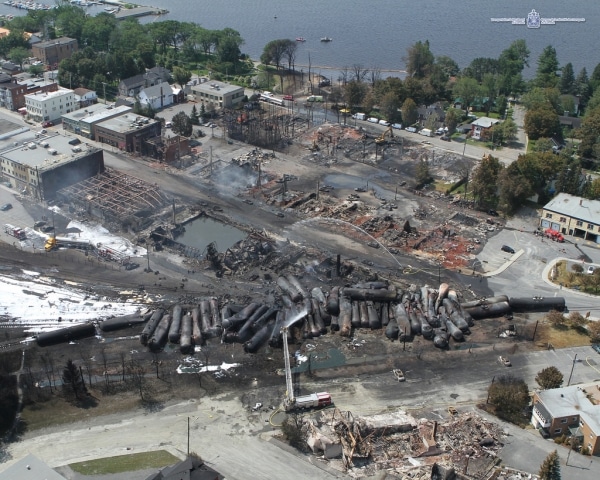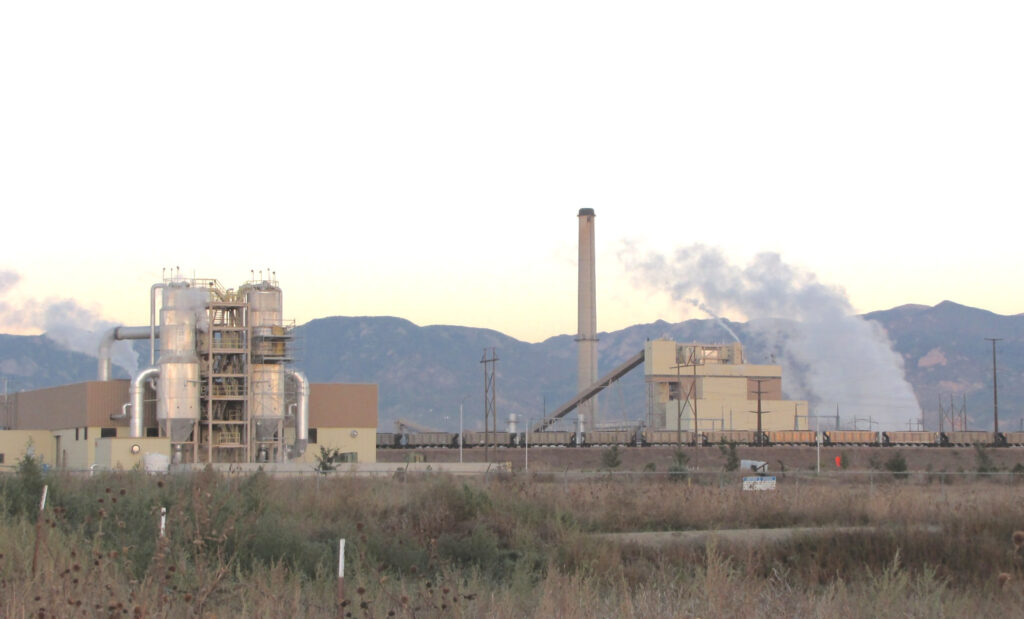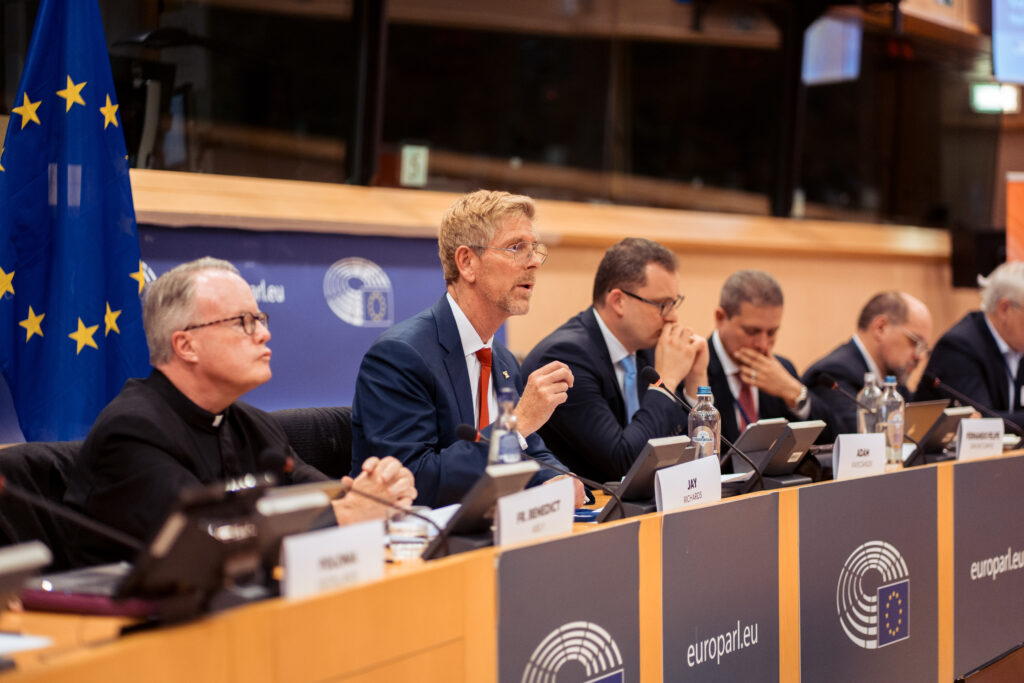On May 12th, a heavily armed SWAT unit stormed the home of Thomas Harding and threw Harding, his son and a visitor to the ground. Harding was then handcuffed, arrested and taken for interrogation.
Harding was the engineer for the oil train that caused the explosion in Lac-Megantic, Quebec. He had cooperated with authorities and was expecting to be charged. The excessive force used to arrest Harding was criticized for being a “politically motivated stunt” in The National Post.
No one is claiming that Harding intentionally caused the accident — however, he is the one facing charges that could result in life in prison.
Meanwhile, the oil industry has knowingly shipped explosive Bakken crude oil and, in the case of Lac-Megantic, misclassified the oil to make it appear less explosive than it actually was.
Irving Oil has been identified by Canada’s Transportation Safety Board as the party ultimately responsible for insuring the proper classification of the oil it had purchased. No one from Irving Oil has been charged with any crime.
And in the case of the oil that ended up in Lac-Megantic, something very odd happened. The oil on that train was purchased from 11 different companies in the Bakken region. When the oil was initially transported by trucks from the point of production to a central facility it was required to be classified.
According to the Transportation Safety Board, there was a wide variety in the classification of the oil in the trucks when it was delivered from the suppliers to a facility in Newtown, ND:
Information contained in 10 different material safety data sheets (MSDS) provided by the suppliers varied widely and was contradictory in some areas. For example, while all MSDSs indicated that the product was a Class 3 dangerous good, the packing group information varied from PG I to PG III.
Not only was there a wide variety of classification, but two of the data sheets indicated it would be necessary to “determine flash point to accurately classify packing group” — something that wasn’t done.
When this oil was shipped in trucks to the rail facility it was then somehow all classified as Packing Group II. And then when it was loaded on to the train, it was all reclassified as Packing Group III, the lowest level classification. So oil that had been Packing Group I at the point of production had now been reclassified as Packing Group III for rail shipment. The odds are high that this was intentional. The industry is well aware of the explosive nature of Bakken crude.
And yet after Lac-Megantic, the problem of misclassification continued to be rampant. When the U.S. Pipeline and Hazardous Materials Safety Administration (PHMSA) conducted a testing program of Bakken crude in late 2013, called “Operation Classification,” it found 11 of 18 samples tested were misclassified. No SWAT teams were summoned to arrest the CEOs of the offending companies — but the companies were fined.
There is a good reason why these companies continue to intentionally misclassify Bakken crude. Fines are not a deterrent. Jeffrey Wiese of PHMSA stated as much last year during an industry conference, when he said:
“Do I think I can hurt a major international corporation with a $2 million civil penalty? No.”
The fines proposed as a result of Operation Classification totaled $93,000.
This past week in New York state, Albany County Executive Dan McCoy made the same point when he announced his intention to introduce new legislation to make it a crime for rail companies not to report accidents in a timely manner. A recent derailment of a Bakken crude train in Albany that was not reported properly cost Canadian Pacific a fine of $5,000.
“That fine doesn’t mean anything to a big corporation. I want to introduce jail time,” McCoy said. “It is the only way that you will get their attention.”
Fines certainly aren’t stopping the misclassification of Bakken crude. But the reality is that the Bakken crude wouldn’t have this issue if it was handled like the oil from the Eagle Ford formation in Texas. There, the oil producers strip the volatile natural gas liquids (NGLs), also known as “light ends,” from the crude using a piece of equipment known as a stabilizer. They can then capture and sell these natural gas liquids.
Eagle Ford producers aren’t doing this because they are more concerned about safety than their counterparts in the Bakken region. They are doing it because their crude is transported by pipeline, not rail, and it is a cost of doing business. Unlike the rail industry, the pipeline industry won’t accept crude oil with all of the volatile natural gas liquids still in it.
Myron Goforth, president of a stabilizer leasing company in Houston, recently explained this to Reuters, saying that “pipeline specifications require certain pressure limits that pretty much force companies to strip out NGLs.” Rail companies have no such requirements.
“It’s a little like the wild west up in the Bakken, where everybody gets to do what they want to do,” Goforth said. “In the Eagle Ford, you’ve got to play by the rules, which forces the oil companies to treat it differently.”
Much like the oil industry’s refusal to discontinue using the unsafe DOT-111 rail tank cars to transport Bakken crude in the U.S., the argument against using stabilizers in North Dakota, like they do in Texas, is the same. It would cost too much money, the companies say. In both cases, the costs have been estimated at several billion dollars — which also just so happens to be the current estimated cost to clean up and rebuild Lac-Megantic. This is a cost that all six companies involved in the accident, including the ones who misclassified the oil, are refusing to pay.
When Harding and two other crew members were frog marched into court after their arrest, Ghislain Champagne, the father of a woman who died in the Lac-Megantic accident, yelled out, “It’s not them we want.”
As reported by the National Post, this is a “common sentiment” in Lac-Megantic because no executives of the rail company have been charged with any crimes. It’s doubtful a fine will suffice for the families of the 47 people who died there last summer.
Photo: Transportation Safety Board
Subscribe to our newsletter
Stay up to date with DeSmog news and alerts






